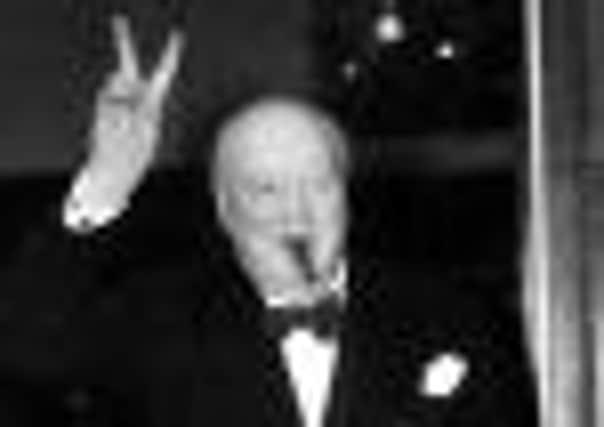Why an insult a day will give freedom of speech more say


As a figurehead for a campaign, which has as its motto the slogan Feel Free To Insult Me, David Davis is not a bad choice.
The former shadow Home Secretary did after all resign as MP for Haltemprice and Howden four years ago sparking a by-election and a barrage of criticism claiming the move was simply an ill-timed publicity stunt.
Advertisement
Hide AdAdvertisement
Hide AdDavis was determined to provoke a debate about the erosion of civil liberties and, while the rest of his Conservative colleagues assumed he had written his own political obituary, the former SAS man ignored the slings and arrows and cruised to victory with 72 per cent of the vote.
Back then, he was protesting about the Government’s plans to detain terror suspects without charge for up to 42 days. Now, it’s another freedom he wants to protect – the freedom to insult.
His aim is simple – to force a repeal of Section 5 of the 1986 Public Order Act, which he claims is having a “terrible, chilling effect on democracy” by strangling free speech.
The legislation, which makes the use of “insulting words or behaviour” illegal, may seem harmless enough, but according to Davis, its lack of clarity has led to series of spurious arrests.
Advertisement
Hide AdAdvertisement
Hide AdWhile stopping short of using the much hackneyed phrase, “political correctness gone mad”, Davis cites the teenager arrested for holding a “Scientology is a dangerous cult” placard and the student held for telling a police officer his horse was “gay” as evidence that this particular law is an ass.
The campaign has already secured a rare alliance across a wide spectrum of groups, from The Christian Institute to Big Brother Watch and gay rights campaigner Peter Tatchell, who all fear that we are in danger of becoming a country which watches its words far too closely.
While David Cameron belatedly apologised if he’d caused any offence after repeatedly urging Angela Eagle, the shadow chief secretary to the Treasury, to “calm down, dear” during a heated Commons exchange last year, wind back half a century and no political debate worth its salt was without a smattering of barbed asides, with Winston Churchill perhaps the master of them all.
It was he who famously described the Labour Prime Minister Clement Atlee as “a sheep in sheep’s clothing... a modest man with much to be modest about” and said Stanley Baldwin was a man “who occasionally stumbled over the truth, but hastily picked himself up and hurried on as if nothing had happened.”
Advertisement
Hide AdAdvertisement
Hide AdGiven his talent for well-timed insults, Churchill couldn’t have been surprised when Margot Asquith retaliated.
“He would kill his own mother,” said the writer and wife of former PM Herbert Henry Asquith, “just so that he could use her skin to make a drum to beat his own praises.” Ouch.
As author of The Perfect Insult for Every Occasion, AC Kemp, an English Language lecturer at the Massachusetts Institute, is perhaps unsurprisingly a supporter of the right to be outspoken and just occasionally obnoxious.
“I wrote the book with the aim of tossing aside new age fluffy sensitivity,” says Kemp, who is also something of a historian of the perfect put-down and during her research for the book found her own personal heroes.
Advertisement
Hide AdAdvertisement
Hide Ad“The literati have always been a rich resource of insults, but among the best has to be Dorothy Parker.
“People get excited about Shakespearian insults, but they make you sound more pretentious than funny. In Hamlet, you’ve got lines like ‘it offends me to the soul to hear a robustious periwig-pated fellow tear a passion to tatters’ about bad actors. Parker’s critique of Katherine Hepburn “she runs the gamut of emotions from A to B” has more punch.”
While Davis’ campaign to repeal Section 5, which according to a ComRes poll already has the backing of the majority of MPs, may have an altogether serious intent, it’s also likely to be embraced by those who believe that watching one’s Ps and Qs has become an overated art.
“Swearing is a really important part of one’s life and it would be impossible to imagine going through life without swearing and without enjoying swearing,” said Stephen Fry, national treasure and champion of four-letter words.
“There used to be mad, silly, prissy people who would say swearing is a sign of a poor vocabulary as such; utter nonsense. The people I know who swear the most tend to have the widest vocabularies.”